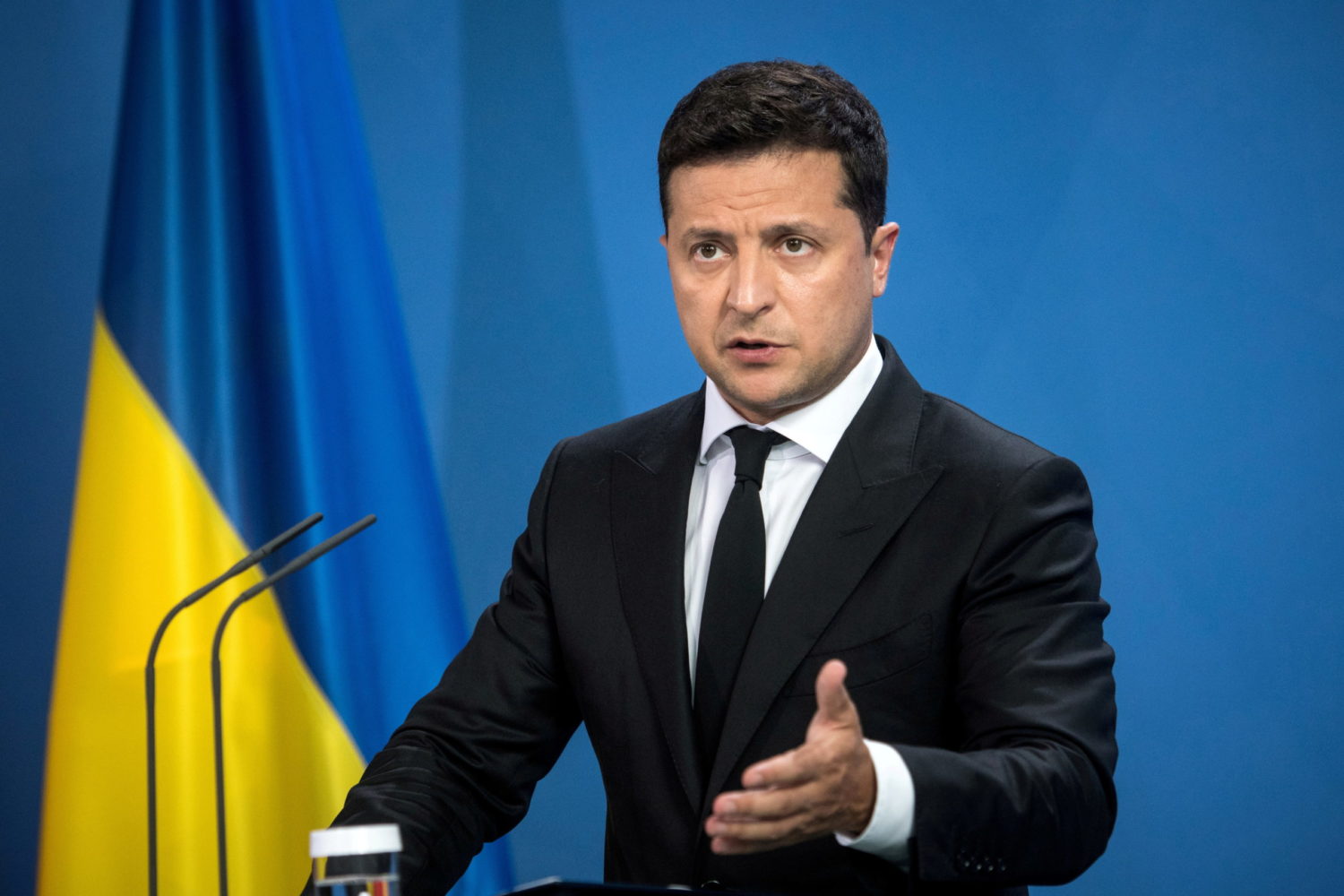
By Robin Emmott and Andrew Osborn
BRUSSELS/MOSCOW (Reuters) -The United States called on Russia to halt a military build-up on Ukraine’s border on Tuesday as Moscow, in words recalling the Cold War, said its “adversary” should keep U.S. warships well away from annexed Crimea.
Moscow seized Crimea from Ukraine in 2014 and fighting has escalated in recent weeks in eastern Ukraine, where government forces have battled Russian-backed separatists in a seven-year conflict that Kyiv says has killed 14,000 people.
Two U.S. warships are due to arrive in the Black Sea this week.
In Brussels for talks with NATO leaders and Ukraine’s foreign minister, U.S. Secretary of State Antony Blinken said Washington stood firmly behind Ukraine.
He also said he would discuss Kyiv’s ambitions to one day join NATO – although France and Germany have long worried that bringing the former Soviet republic into the Western alliance would antagonize Russia.
“The United States is our adversary and does everything it can to undermine Russia’s position on the world stage,” Deputy Foreign Minister Sergei Ryabkov was quoted as saying by Russian news agencies on Tuesday.
Ryabkov’s remarks suggest that the diplomatic niceties which the former Cold War enemies have generally sought to observe in recent decades is fraying, and that Russia would robustly push back against what it regards as unacceptable U.S. interference in its sphere of influence.
“We warn the United States that it will be better for them to stay far away from Crimea and our Black Sea coast. It will be for their own good,” Ryabkov said, calling the U.S. deployment a provocation designed to test Russian nerves.
CALL FOR DE-ESCALATION
Blinken met Ukrainian Foreign Minister Dmytro Kuleba after Group of Seven foreign ministers condemned what they said was the unexplained rise in Russian troop numbers.
Echoing NATO Secretary-General Jens Stoltenberg, who met Kuleba earlier, Blinken said Moscow was massing forces in its biggest build-up since 2014, since Moscow annexed Crimea. He called Russia’s actions “very provocative”.
“In recent weeks Russia has moved thousands of combat-ready troops to Ukraine’s borders, the largest massing of Russian troops since the illegal annexation of Crimea in 2014,” Stoltenberg said.
“Russia must end this military build-up in and around Ukraine, stop its provocations and de-escalate immediately,” Stoltenberg said at a news conference with Kuleba.
Russia has said it moves its forces around as it sees fit, including for defensive purposes. It has regularly accused NATO of destabilizing Europe with its troop reinforcements in the Baltics and Poland since the annexation of Crimea.
Russian Defense Minister Sergei Shoigu said on Tuesday Russia had moved two armies and three paratrooper units to near its western borders in the last three weeks, responding to what it called threatening military action by NATO.
Shoigu, speaking on state television, said NATO was deploying 40,000 troops near Russia’s borders, mainly in the Black Sea and the Baltic regions.
“In total, 40,000 troops and 15,000 weapons and pieces of military equipment are concentrated near our territory, including strategic aircraft,” Shoigu said.
The Western alliance denies any such plans.
SANCTIONS, MILITARY HELP
Kuleba said Kyiv wanted a diplomatic solution.
Kyiv and Moscow have traded blame over the worsening situation in the eastern Donbass region, where Ukrainian troops have battled Russian-backed separatist forces.
Kuleba appealed for further economic sanctions against Moscow and more military help to Kyiv.
“At the operational level, we need measures which will deter Russia and which will contain its aggressive intentions,” Kuleba said after the NATO-Ukraine Commission met at the alliance headquarters.
This could be direct support aimed at strengthening Ukraine’s defense capabilities.
Separately, two diplomats said Stoltenberg would chair a video conference with allied defense and foreign ministers on Wednesday. Blinken and U.S. Defense Secretary Lloyd Austin were expected to be present at NATO headquarters in Brussels to brief the other 29 allies on Ukraine, as well as on Afghanistan, the diplomats said.
Austin, on a visit to Berlin, said the United States would ramp up its forces in Germany in light of the friction with Moscow, abandoning former President Donald Trump’s plans to withdraw about round 12,000 of the 36,000 troops from there.
Kyiv has welcomed the show of Western support, but it falls short of Ukraine’s desire for full membership of NATO.
(Additional reporting by Alexander Marrow in Moscow, Editing by Mark Heinrich and Angus MacSwan)







